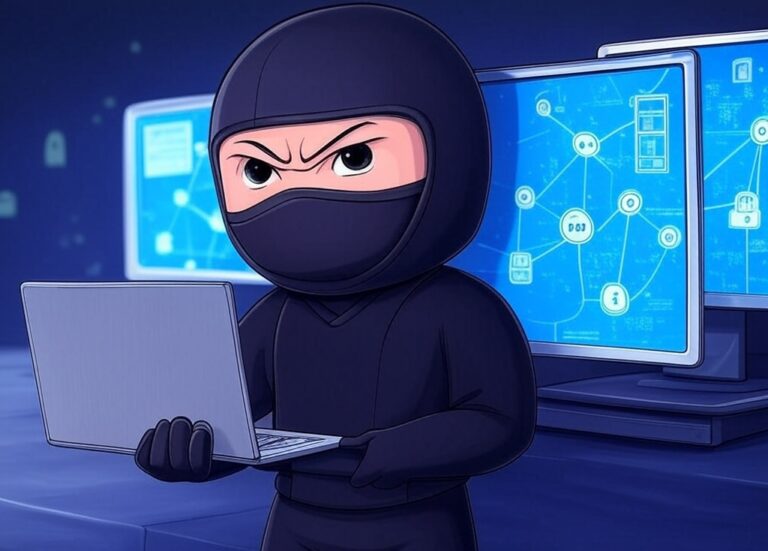
What is Ethical Hacking?
Ethical hacking, also known as penetration testing or white hat hacking, is the practice of intentionally probing computer systems, networks, and software applications to identify and address potential security vulnerabilities. Unlike malicious hackers, ethical hackers operate with permission and under a specific set of rules and guidelines to ensure they act within legal and ethical boundaries.
The Objectives of Ethical Hacking
The main objectives of ethical hacking are to assess the security posture of an organization, identify weaknesses or vulnerabilities, and provide recommendations for improving the security defenses. Ethical hackers use various techniques and tools to simulate real-world attacks and attempt to exploit vulnerabilities in order to gain unauthorized access, extract sensitive information, or compromise system integrity.
Here are some key aspects of ethical hacking:
Authorized Access: Ethical hackers must have proper authorization from the owner or administrator of the target system or network. They work within legal boundaries and adhere to a defined scope of work.
Information Gathering: Ethical hackers gather as much information as possible about the target, such as IP addresses, domain names, network infrastructure, and other publicly available data. This process is called reconnaissance and helps them understand potential attack vectors.
Vulnerability Assessment: Ethical hackers perform systematic scans and tests to identify security weaknesses in the target environment. They may utilize automated tools to discover vulnerabilities in network configurations, operating systems, web applications, or databases.
Exploitation: Once vulnerabilities are identified, ethical hackers attempt to exploit them to gain access to the system or extract sensitive information. This step helps to demonstrate the impact of the vulnerabilities and determine the potential risks they pose.
Reporting and Recommendations: Ethical hackers document their findings in a comprehensive report, outlining the identified vulnerabilities, the potential impact of exploitation, and recommendations for remediation. This report helps organizations understand their security gaps and take appropriate measures to address them.

The Importance of Ethical Hacking
The importance of ethical hacking can be summarized in several key points:
Enhancing Cybersecurity: Ethical hacking helps identify vulnerabilities and weaknesses in computer systems, networks, and applications before malicious hackers can exploit them. By proactively finding and fixing these weaknesses, organizations can significantly enhance their overall cybersecurity posture.
Preventing Data Breaches: Ethical hacking helps prevent data breaches and leaks by identifying and mitigating security risks. This is critical for protecting sensitive information such as customer data, intellectual property, and financial records.
Protecting Customer Trust: Organizations that invest in ethical hacking demonstrate a commitment to protecting their customers’ data and privacy. This builds trust among clients and partners, which is crucial for maintaining a positive reputation and customer loyalty.
Compliance and Legal Requirements: Many industries and regions have strict regulatory requirements for data security and privacy. Ethical hacking helps organizations meet these compliance standards and avoid legal consequences, fines, and penalties.
Cost Savings: Detecting and addressing security vulnerabilities early can save organizations significant costs in the long run. It is generally less expensive to proactively fix issues than to deal with the aftermath of a security breach.
Business Continuity: Ethical hacking helps ensure the continuity of business operations by preventing disruptions caused by cyberattacks. Downtime and disruptions can result in financial losses and damage to an organization’s reputation.
Staying Ahead of Cybercriminals: Cybercriminals are continually evolving their tactics and techniques. Ethical hackers stay up to date with the latest threats and vulnerabilities, allowing organizations to stay one step ahead of malicious actors.
Educating Personnel: Ethical hacking exercises can raise awareness and provide valuable training for employees and IT staff. This helps them better understand security risks and practices, making them more vigilant in day-to-day operations.
Innovation and Research: Ethical hackers often push the boundaries of cybersecurity through research and experimentation. Their insights contribute to the development of better security technologies and practices.
Global Cybersecurity Collaboration: Ethical hacking fosters a collaborative environment where experts share knowledge and work together to address common security challenges. This global cooperation is essential in the fight against cyber threats.
Conclusion
In summary, ethical hacking plays a crucial role in safeguarding digital assets, maintaining trust, and ensuring the smooth operation of businesses and organizations in an increasingly connected and digital world. It is a proactive and strategic approach to cybersecurity that is indispensable in today’s threat landscape.
It’s important to understand that ethical hacking should only be performed by trained and certified professionals who follow strict ethical guidelines. Organizations often engage third-party security firms or employ in-house teams of ethical hackers to perform these assessments. Make sure you stay on the right side of the law at all times when learning ethical hacking techniques.
Happy Hacking Folks!
Ethical Hacking Guides
We have many guides to help you on your journey into the world of Ethical Hacking. If this is something you find interesting, please take a look here today: Ethical Hacking Guides.
Recommendation:
ALFA Network Wi-Fi Adapter: https://amzn.to/3QbZ6AE
This Wi-Fi adapter is essential if you are to learn Wi-Fi Hacking.




